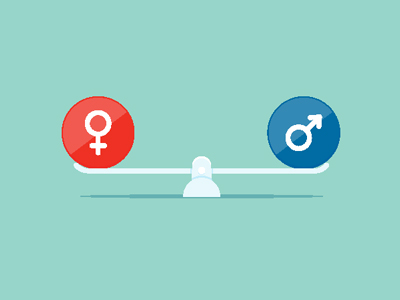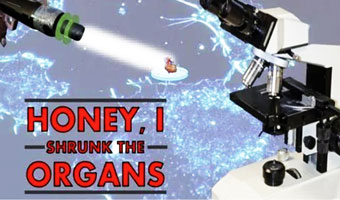
HWZOA in the United States and the Linda Joy Pollin Cardiovascular Wellness Center in Israel, together with women’s organizations, and the Israel Heart Society, are working to promote gender equity in medical research.
For the physicians and staff at Hadassah Medical Organization’s Heart Institute, complaints that there aren’t enough women included as test subjects in medical research or, for that matter, in medical academia are not new. Does it really matter? Does it make a difference in what happens to patients? Is there still gender bias in medical research? Currently, don’t both men and women get the optimal treatments based on evidence-based practice?
Unfortunately, even in 2018, the answers are not clear. Much of the time, medical research starts out in the animal lab, but animal studies use five times as many male animals as female animals, even when the study is on diseases more common in women. This comes despite the fact that data from male animals may not accurately predict what will happen in human females. Some treatments that might benefit women more than men may be getting lost from the start.
Women are underrepresented as participants in almost every type of medical research other than research on cancers that occur primarily in women. Only 25 percent of the participants in research on heart failure are women, even though more than 50 percent of the people suffering from heart failure are women. Ironically, this can even happen in studies on drugs that are primarily used in women. For example, the medication fibanserin was recently studied in combination with alcohol to see if it led to a drop in blood pressure. Twenty-three men and two women participated in the study. Since fibanserin has been approved for use only in women, results of such testing are not helpful.
Research that does not account for gender differences can result in inaccurate conclusions about how women respond to disease, and this, in turn, will influence the effectiveness of treatment choices. Cardiovascular disease is a prime example of the manner in which disregarding gender differences can unduly influence treatment effectiveness. It is now known that women may have different symptoms of a heart attack when compared to men. For many years women were misdiagnosed, or were diagnosed late in the event, resulting in excess morbidity and mortality in women due to heart disease.
Benefits of gender equity in medical research do not apply just to women. Improved understanding of gender issues improves medical care for men as well. The more researchers learn about “female” patterns of disease, the more they realize that men may have similar disease states, though in lower percentages. Sometimes more is known about the female manifestation of a disease, such as depression, than the male manifestation. Research has traditionally been done on the female pattern of depression; this frequently leaves men under-diagnosed and under-treated.
Some differences are biological and some are related to the socio-cultural differences of what it means to be male or female in our society. Women may fail to seek care for chest pain because of concerns about being perceived as hysterical or because caretaking responsibilities overtake other concerns. Young men are at increased risk of smoking and violence because of cultural norms that are more salient than concerns about the distant future. Following an acute medical incident, women are prescribed less medication than recommended by evidence-based practice. Interestingly, research has shown that checklists remove these differences. Medical professionals are not purposely treating women insufficiently; instead, underlying biases interfere with appropriate care.
Will getting more women into academia make a difference? It is known that research trials in which the first author and last author are both men have a significantly lower rate of female study participants. At this point in time, funding and staffing decisions by research funders and institutions are made by committees almost exclusively staffed by men.
How can we ensure that both men and women get the medical care they deserve? Research funders need to adopt formal policies that encourage researchers to include considerations of gender in their research designs and analyses. Additionally, all medications should be tested in both women and men, and drug companies should be required to report gender analyses of pharmacokinetics and pharmacodynamics.
HWZOA in the United States and the Linda Joy Pollin Cardiovascular Wellness Center in Israel, together with Knesset members, women’s organizations, and the Israel Heart Society, are working to promote gender equity in medical research. The hope is that those efforts translate into improved cardiovascular health for everyone.









